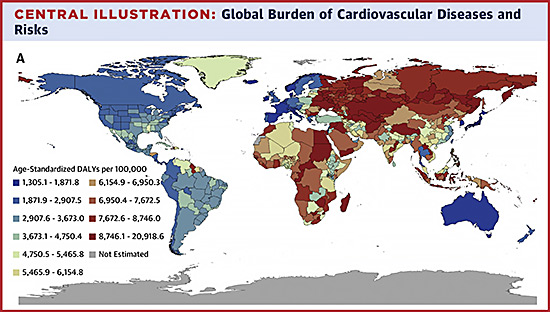So… if we eat an unrealistic amount of processed meat we will get sick?
Who knew?
Next they’ll tell us that swallowing even 1 mouthful of hydrogen peroxide mouthwash is unsafe.
as little as one hot dog a day
That is a lot processed meat to be eating if its every single day. Who is buying more than a pack of sausages per person each week? Also hot dog sausages are surely some of the worst sausages for being highly processed. Don’t forget about the strange bread used in hot dogs too. That must have a shitload of stuff added to it or it would be stale and mouldy. Bread shouldn’t still be fresh days later.
also celery salt, or juice in those bougie organic hot dogs, in places like whole foods is all nitrates too. nitrate/nitrite salts have distinctive taste and smell. many orgnaic brands might have celery salt. your safe if the ingredients isnt mentioning any salts or celery.
when your heating up nitrates, it forms things like nitrosamine which have been implicated in lab studies of causing cancer in model organisms.
smoked and UNCURED meat might still have the same nitrates in them.
But I only buy boars head so it obviously safe.
/s, although I did reluctantly buy some teriyaki chicken boars head that sounded amazing.
Would this mean that cultured-cell meat would be unhealthy too?
If I were to guess the biggest problem is modified fats and high temperature processing are the biggest dangers
So no, lab grown meat wouldn’t have that problem provided they don’t use modified fats or steam canning you should be fine.
The thing is whatever trace contaminants are in the substrate will manifest in concentration in the meat
I guess 7 hotdogs a day is a little high…
Does … anything happen on the way to work?
Well, clearly that ain’t true because God wouldn’t have made pork pies taste so nice otherwise.
What is the definition of “processed” here? blended meat? high salt %? specific preservatives? artificial casing?
Only $209 per year for access to the content
Or
Similar research from around a year ago:
"Introduction Ultra-processed foods, as defined using the Nova food classification system, encompass a broad range of ready to eat products, including packaged snacks, carbonated soft drinks, instant noodles, and ready- made meals. 1 These products are characterised as industrial formulations primarily composed of chemically modified substances extracted from foods, along with additives to enhance taste, texture, appearance, and durability, with minimal to no inclusion of whole foods. 2 "
Also what definition of “safe”.
My grandpa eats at least one burger per week and he’s turning 90 next year. So obviously “safe” isn’t a measure of imminent and near term death?
I agree with you, but using a relative that does something unhealthy that got old to prove a point is not really scientific nor right.
We absolutely know that smoking causes cancer is a really unhealthy habit, yet we see people that smoke reach very high age. However the average smoker lives a shorter life.
As always, unsafe never means 100% chance to kill. Not wearing s seatbelt while driving is unsafe, but it doesn’t mean that you will not be able to survive to 90 is you’re lucky.
Too bad, eating it anyways. Besides, the government will kill me first.
The sun has entered the chatroom
I feel like the word Safe is being stretched really far here.
Like at this level, getting out of bed isn’t Safe.
Walking through a park isn’t Safe.And that level of Unsafeness, is functionally meaningless.
I’d like to be sealed in a sous vide bag, that way I can be perpetually protected from anything that tastes good and live forever.
Then you’d have to worry about micro plastics.
not a person in the western world that doesn’t already have a ton of microplastics inside
Hmmm, could we perhaps make a large enough one from a whale stomach?
im okay with not living to 100 at this point, life is short, and id like it to be shorter.
“I would never commit suicide, but I would like to die naturally soon.” - Zoltan Kaszas
You don’t want to stick around for the climate collapse, never be able to own anything or retire, and fascist death camps / genocide?
There are some very useful things you can do with this mindset
Mariokart tournament?
#BlueShell
I would never suggest such a horrible thing. CEOs lives matter. Thin green line.
sorry, im canadian. and i talk a lot of shit about the president so its not like i can cross the boarder. but i respect the hustle.
you won’t live longer, it’ll just seem longer.
Seems particularly bad for the average USA fast food diet. People in the USA love soda, fried food and processed meat.
Habitual consumption of even small amounts of processed meat, sugary drinks, and trans fatty acids…
Followed by
The data showed that people who ate as little as one hot dog a day …
As little as one hot dog a day? I eat like one every few months. How many hot dogs is the average American eating daily?
I would be really surprised if most people average one a week. But that doesn’t mean it’s not happening.
Yeah but does lunch meat count?
I ate some pepperoni on pizza, that surely is doing damage.
The Toddlers Union of America would like a word…
And it’s known that more than 2 - 3 times meat a week is unhealthy.
Surely 1g every day is better than 750g once a week. Is there a quantity to that?
Yeah, go google it.
Which reminds me. I need to start eating chicken again. Rn I have a rotating menu of fish, tofu, beef.
Obligatory Whitest Kids U Know plug
I think “hot dog” was used as an example here. A hot dog has around 50 grams of meat (1.8 oz).
I thought hot dogs weighed at least a quarter lb?
You don’t have a daily dog? What else would you eat after dinner?
No hot dog surprise cereal either, apparently!
What an insane headline.
First meta data analysis.
Second, “This current research has shown, yet again and consistent with prior research … that to achieve health gains it is best to avoid or minimize the habitual consumption of each of processed meat, sugar-sweetened beverages (SSBs) and industrially produced trans fatty acids (TFAs),”
So don’t eat a ton of shit every day. Got it. The CNN version of super size me propaganda rage bait.
You’re shitty at science and spreading propaganda. Feel bad about yourself.
You had me up until that last part
being shitty at science and spreading propaganda is pretty much ancel keyes, who played a big part in wrecking the country’s dietary health decades ago
no amount of bad feelings could make up for the damage he did
edit: further reading https://academic.oup.com/jhmas/article/63/2/139/772615?login=false
see also: vaccines. shitty science. propaganda. irreparable damage
Like… is it written to excite anxiety?
Getting a colorectal cancer probability in a lifetime is about 0.04, eating hotdog adds 8% to it or ~0.003. I like how precisely we can measure it using regular statistics, but what does it tell to a human being? To me it tells nothing about hotdogs
Agreed and it should be mandatory to add in the headline who financed the study
Isn’t big tobacco still the major investor in cancer epidemiology research? I mean, when it’s not about cigarettes and nicotine
This is like saying it’s not safe to go outside because there’s some marginal percent you’ll be murdered or some shit.
Higher chance you will die of heart disease if you don’t.
The title is also shit, leaving put sugars etc and only putting forward processed Meat.
It would be more useful to correlate this with other common risks, like PFAS exposure, genetic factors, etc
I guess the point is that it shows the correlation between processed food and cancer is statistically significant. As in there is definitely a link, and this meta analysis shows good evidence this link exists. Even if the impact is small.
As for the day to day impact of this study, I’m not sure there is one. Processed food is already on WHOs list of things that definitely cause cancer.
Getting a colorectal cancer probability in a lifetime is about 0.04, eating hotdog adds 8% to it or ~0.003.
Depending on the average amount of processed meats eaten, it could also show not eating a hot dog every day will reduce your risk of cancer by about that much. It’s probably only important in the cumulative though. When we have studies like this for many foods, you could put together a diet that reduces your chance of cancer by 20 or 30%, say. But one food’s impact like this is probably only important to scientists.
So getting back to your original question:
Like… is it written to excite anxiety?
Yes. Anxiety drives clicks which drives revenue.
1000 people show up to the annual picnic. If we remove hot dogs from the market, and dont serve them at our picnic, or any picnic, ever, 40 of those 1000 people are going to get colorectal cancer.
If we do serve hot dogs at our picnic (and every other picnic), 43 people are going to get colorectal cancer at some point in their lives.
Pass the mustard.
What if you could have a grilled fish instead though?
Mercury.
Isn’t that only an issue with some types of fish though, like tuna?
Fish are carnivorous, and mercury is bioaccumulative. So, larger fish tend to have higher concentrations than smaller fish, but pretty much all fish have some level of mercury. There is no “safe” concentration.
But the real problem with your scenario is that I’d prefer hunger pangs over fish, grilled or otherwise.
Freshwater fish also exist, or areas with less contamination. If you won’t eat fish though that sounds more like a you problem.
It’s probably only important in the cumulative though. When we have studies like this for many foods, you could put together a diet that reduces your chance of cancer by 20 or 30%, say.
I don’t think that quite transfers, epidemiology is very weak, it only surfaces associates which is a good point to do a interventional trial but that is rarely done. The core problem with these studies is that to isolate variables they have to make a model of that variable in isolation, this relies on both assumptions of the model maker, accuracy of data, and is very vulnerable to p-hacking. Model assumptions that a hamburger and fries counts as meat, but not vegetable (potato) also impact the outcomes.
The large observational food surveys conducted typically have a 1-4 year questionnaire about how many servings of different food someone ate. Once every 4 years leaves lots of room open for forgetfulness.
There is a huge problem with healthy user confounders, people trying to follow all the modern health advice are going to skew results - not because all of the advice is correct, but some of it is. If someone exercises regularly, practices mindfulness, avoids processed foods, avoids meat - Are their improvements due to any single variable, yet on a food survey they get over represented because of these exclusionary behaviors.
We also have multiple different epidemiology studies covering the same topics and getting different results, that probably means we are focusing on the wrong question, it’s noisy.
From my reading its far more likely the modern epidemic of chronic disease is caused by the introduction of excessive carbohydrates in processed foods, the novel addition of industrial oils (again processed foods) into the food supply - they account for 30%!!! of the average westerners average calorie intake, exposure to food contaminates from agrochemicals such as pesticides. The metabolic context of people filling out these surveys is a critical part that is being omitted.
In the following graphs notice how the incidence is very high in countries with traditionally low meat consumption like india? This indicates the hypothesis generated from the abstract paper isn’t asking the right question.
example graphs
CVD

Type 2 Diabetes

My point is that you can follow every bit of advice from associative food surveys, but since the wrong questions are being focused on, your outcomes wont be as good as you hope. Quite frankly epidemiology is more about publicity and marketing then being part of the scientific process.
Like I said, it may be a scientifically interesting study, but the broader audience can’t take anything from it but anxiety.
a diet that reduces your chance of cancer by 20 or 30%, say.
That would be significant, but probably not today. The lifetime risk of dying as a pedestrian in a car accident is around 1 in 100, so mitigating other risks is not an option for now
Cancer is the leading cause of premature mortality and morbidity (death and disability) in Canada.
So, an accumulation of small risks, and avoidance of risks, have significant benefits at both the individual and population levels.
The general population needs to be aware that unhealthy eating is impacting their lives and quality of life.
Let’s stick to the peer reviewed science and evidence consensus.
WHO established the four behavioural common risk factors for the four major chronic noncommunicable diseases decades ago.
The kind of research synthesis in this article is about continuing to build the evidence on relative and absolute risks, and in some cases look at how these differences impact different populations more or less due to intersecting determinants.
Common risk factors
- unhealthy diet
- physical inactivity
- tobacco use
- harmful use of alcohol
- air pollution added more recently
Major chronic noncommunicable diseases
- cancer
- cardiovascular diseases
- diabetes
- chronic respiratory diseases
No questions regarding the populational risks as the small percentages would shine with the big numbers.
WHO’s recommendations remain the same for decades indeed: lower processed and red meat, eat chicken and fiber.
What’s your point exactly?
My point is that raising risks of getting hit by a car, or other accidental causes of injury and death beyond the individual’s control, is a deflection.
Cancer is the leading cause of death in Canada.
Full stop.
No one single risk factor is responsible for that. Building the evidence base to be able to both inform individual behaviour but also to inform food safety regulations is important.
Parent comment discussed “anxiety”, a condition which has its own associated morbidity and mortality, and should also be considered when evaluating these studies.

















